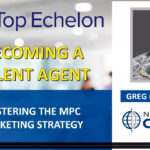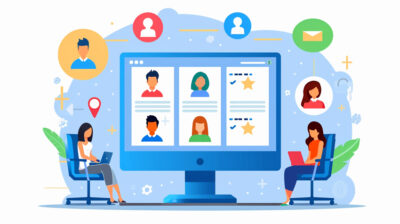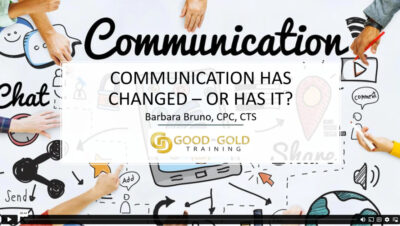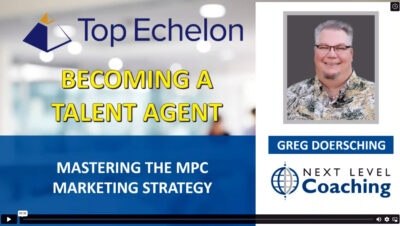In today’s competitive job market, agency recruiters and search consultants need to adopt innovative strategies to source high-quality talent. One such strategy involves forging partnerships with educational institutions.
These collaborations can provide access to a steady pipeline of emerging talent, offer opportunities for brand building, and create mutually beneficial relationships that enhance the recruitment process. This article from Top Echelon Recruiting Software explores the various aspects of building and maintaining effective partnerships with educational institutions for talent acquisition.
The Importance of Partnering with Educational Institutions
Access to Emerging Talent
Educational institutions are a rich source of emerging talent. By partnering with universities, colleges, and vocational schools, recruiters can tap into a pool of recent graduates who bring fresh perspectives, up-to-date knowledge, and enthusiasm to the workforce. This access to young talent is especially valuable in industries that require specific technical skills or where there is a high demand for innovation and new ideas.
Brand Building and Visibility
Partnerships with educational institutions can significantly enhance a recruiter’s brand visibility. By engaging with students early in their academic careers, agencies can establish themselves as preferred employers and trusted advisors in the job market. This early engagement helps in building a positive image and strong relationships, which can pay dividends when these students enter the job market.
Pipeline Development
Developing a talent pipeline through educational institutions ensures a steady flow of qualified candidates. This proactive approach to recruitment helps in addressing future hiring needs and reduces time-to-fill for critical positions. By continuously nurturing relationships with educational institutions, recruiters can maintain a robust pipeline of talent that is ready to be tapped as soon as hiring needs arise.
Mutual Benefits
Such partnerships are mutually beneficial. Educational institutions gain insights into industry trends and employer expectations, which can inform curriculum development and enhance the employability of their graduates. In turn, recruiters gain access to a well-prepared talent pool. This symbiotic relationship helps in bridging the gap between education and employment, ensuring that graduates are job-ready and employers have access to qualified candidates.
Strategies for Forging Effective Partnerships
1. Establishing Relationships with Key Stakeholders
Building successful partnerships requires establishing strong relationships with key stakeholders within educational institutions. This includes faculty members, career services staff, and student organizations.
Tips for Establishing Relationships
- Identify Key Contacts: Start by identifying key contacts within the institution, such as career services directors, department heads, and faculty members who are influential in student career development.
- Attend Campus Events: Participate in campus events such as career fairs, industry panels, and networking events. These events provide opportunities to connect with stakeholders and understand the institution’s culture and needs.
- Regular Communication: Maintain regular communication with your contacts. Provide updates on industry trends, share job opportunities, and offer feedback on student preparedness.
- Offer Expertise: Position yourself as a valuable resource by offering to give guest lectures, conduct workshops, or participate in curriculum advisory boards. This establishes your credibility and fosters deeper relationships.
2. Engaging with Students
Direct engagement with students is crucial for building a strong talent pipeline. Engaging activities help students become familiar with your brand and develop an interest in your organization.
Tips for Engaging with Students
- Career Fairs: Participate in career fairs to meet students face-to-face. Use these events to promote your brand, discuss career opportunities, and collect resumes.
- Workshops and Seminars: Conduct workshops and seminars on topics such as resume writing, interview skills, and job search strategies. These events provide value to students and position your agency as a trusted advisor.
- Internship Programs: Develop internship programs that offer students hands-on experience and exposure to your industry. Internships are a great way to evaluate potential candidates and build relationships with future hires.
- Student Organizations: Partner with student organizations and clubs related to your industry. Sponsor events, offer mentorship programs, and engage with students in a less formal setting.
3. Collaborating on Curriculum Development
Collaborating with educational institutions on curriculum development ensures that students are equipped with the skills and knowledge required by the industry. This alignment between education and industry needs benefits both students and employers.
Tips for Curriculum Collaboration
- Advisory Boards: Join advisory boards that provide input on curriculum development. Share insights on industry trends, skill requirements, and emerging technologies.
- Guest Lectures: Offer to give guest lectures on topics relevant to your industry. This not only enhances the curriculum but also raises your profile among students and faculty.
- Capstone Projects: Sponsor capstone projects or industry-focused research initiatives. Provide real-world problems for students to solve, offering them practical experience and giving you access to innovative solutions.
- Skills Workshops: Conduct skills workshops that complement the academic curriculum. Focus on practical skills such as project management, communication, and teamwork.
4. Creating Employer Branding Initiatives
Effective employer branding initiatives help in establishing your agency as an employer of choice among students and graduates. These initiatives create awareness and interest in your organization.
Tips for Employer Branding
- Campus Ambassadors: Establish a campus ambassador program where current students represent your agency on campus. Ambassadors can promote job opportunities, organize events, and build a positive image of your brand.
- Social Media Engagement: Use social media platforms to engage with students. Share content related to industry insights, career advice, and success stories. Highlight your involvement with educational institutions.
- Scholarship Programs: Offer scholarships to outstanding students. This not only provides financial support but also creates goodwill and strengthens your brand presence on campus.
- Employer Spotlight: Participate in employer spotlight programs organized by career services. Use these opportunities to showcase your company culture, values, and career opportunities.
5. Leveraging Technology
Technology can enhance your efforts to build and maintain partnerships with educational institutions. Use digital tools to streamline communication, engagement, and data collection.
Tips for Leveraging Technology
- Virtual Career Fairs: Participate in virtual career fairs to reach a wider audience. Use video conferencing tools to conduct interviews and presentations.
- Online Job Portals: Post job opportunities on the institution’s online job portals. Ensure that your postings are detailed and highlight the benefits of working with your agency.
- Webinars: Conduct webinars on industry trends, career advice, and job search strategies. Webinars allow you to engage with students who may not be able to attend in-person events.
- Data Analytics: Use data analytics to track the effectiveness of your engagement efforts. Analyze metrics such as student attendance, application rates, and conversion rates to continuously improve your strategies.
Case Studies: Successful Partnerships in Action
Case Study 1: Building a Talent Pipeline with Local Universities
Scenario: A mid-sized tech recruiting agency wanted to build a strong pipeline of software developers to meet the growing demand from their clients.
Action: The agency partnered with several local universities with strong computer science programs. They established relationships with faculty members and career services staff, participated in career fairs, and offered guest lectures on industry trends. They also created a competitive internship program that provided hands-on experience and mentorship for students.
Outcome: The partnership resulted in a steady flow of qualified candidates for the agency’s clients. The agency’s visibility and reputation on campus grew, making it easier to attract top talent. The internship program became a key source of new hires, with many interns transitioning to full-time roles after graduation.
Case Study 2: Enhancing Brand Visibility Through Scholarship Programs
Scenario: A healthcare recruiting agency aimed to enhance its brand visibility and attract top nursing graduates.
Action: The agency launched a scholarship program for nursing students at several prominent nursing schools. They also engaged with students through workshops on resume writing and interview skills and participated in career fairs. The scholarship recipients were invited to exclusive networking events with senior recruiters and clients.
Outcome: The scholarship program significantly boosted the agency’s brand visibility and reputation among nursing students. The agency received a higher number of applications from qualified candidates, and the networking events helped build strong relationships with potential hires. The scholarship recipients often referred their peers to the agency, further expanding the talent pool.
Case Study 3: Curriculum Collaboration to Meet Industry Needs
Scenario: An engineering recruiting firm needed candidates with specialized skills in renewable energy technologies, which were not widely covered in traditional engineering programs.
Action: The firm collaborated with a leading engineering school to develop a specialized curriculum focused on renewable energy. They provided industry insights, helped design course content, and offered guest lectures. The firm also sponsored capstone projects related to renewable energy, providing real-world problems for students to solve.
Outcome: The specialized curriculum produced graduates with the exact skills needed by the firm’s clients. This alignment between education and industry needs ensured a high placement rate for graduates in renewable energy roles. The collaboration also positioned the firm as a thought leader in the renewable energy sector, attracting more clients and candidates.
Overcoming Challenges in Educational Partnerships
Navigating Institutional Bureaucracy
Working with educational institutions often involves navigating complex bureaucratic structures. Building relationships with key stakeholders and understanding the institution’s processes are crucial for overcoming this challenge.
Strategies for Navigating Bureaucracy
- Build Trust: Establish trust with key stakeholders by consistently delivering value and maintaining open communication.
- Understand Processes: Take the time to understand the institution’s processes and timelines. Align your engagement efforts with their academic calendar and administrative procedures.
- Be Patient: Recognize that building partnerships takes time. Be patient and persistent in your efforts to establish and maintain relationships.
Balancing Immediate Hiring Needs with Long-Term Pipeline Development
Recruiters often face the challenge of balancing immediate hiring needs with the long-term goal of developing a talent pipeline. It’s important to find a balance between these priorities to ensure both short-term and long-term success.
Strategies for Balancing Priorities
- Set Clear Goals: Define clear goals for your partnership efforts, balancing immediate hiring needs with long-term pipeline development.
- Allocate Resources: Allocate resources effectively, dedicating time and effort to both immediate recruitment and long-term relationship building.
- Track Progress: Use data analytics to track the progress of your engagement efforts. Monitor metrics related to both immediate hires and long-term pipeline development.
Ensuring Consistent Engagement
Consistent engagement with educational institutions is key to maintaining strong partnerships. This requires a sustained effort and a strategic approach to communication and relationship building.
Strategies for Consistent Engagement
- Develop a Calendar: Create an annual engagement calendar that outlines key events, activities, and communication touchpoints.
- Assign Dedicated Roles: Assign dedicated team members to manage relationships with educational institutions. This ensures continuity and consistency in your engagement efforts.
- Evaluate and Adapt: Regularly evaluate the effectiveness of your engagement efforts and adapt your strategies based on feedback and results.
Educational Institutions and Recruiting
Forging partnerships with educational institutions is a powerful strategy for agency recruiters and search consultants to access emerging talent, enhance brand visibility, and develop a robust talent pipeline. By establishing strong relationships with key stakeholders, engaging with students, collaborating on curriculum development, creating effective employer branding initiatives, and leveraging technology, recruiters can build and maintain successful partnerships that yield significant benefits.
Through real-world case studies and practical strategies, this article has highlighted the importance of educational partnerships and provided actionable insights for building and sustaining these relationships. By embracing these strategies, agency recruiters and search consultants can position themselves as leaders in talent acquisition, ensuring a steady flow of qualified candidates and driving long-term success in the competitive job market.








